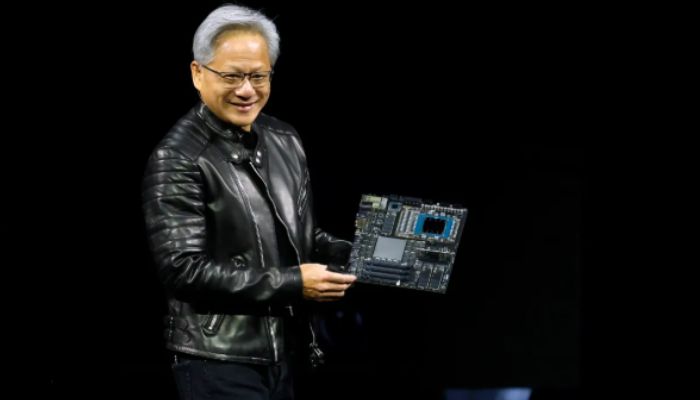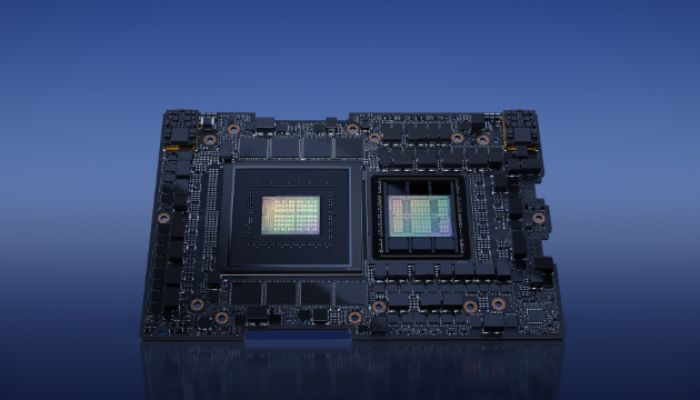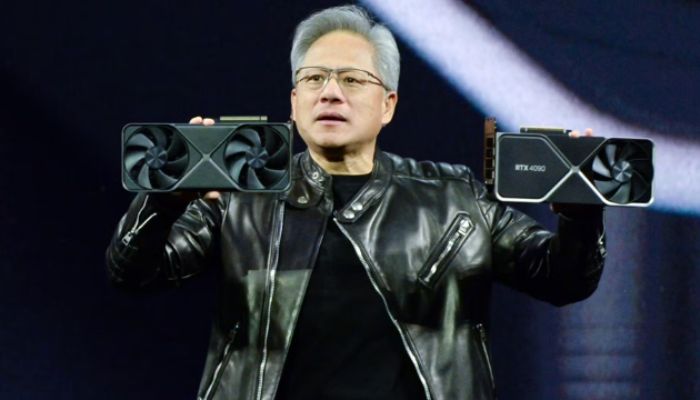Nvidia, the global leader in GPU and AI hardware, is reassessing its business strategy for the Chinese market after the U.S. government imposed export restrictions on its advanced H20 chip. The chip, part of Nvidia’s high-performance Hopper series, was designed specifically to comply with earlier U.S. export rules. However, the latest regulatory clampdown has made even this tailored chip unavailable for sale in China.
Speaking at a press conference, Nvidia CEO Jensen Huang revealed that the company will not develop any more chips from the Hopper series for China. Instead, the tech giant is exploring alternative solutions to navigate the complex regulatory landscape and meet the growing demand for AI and GPU technology in China.

Background: U.S. Export Controls Tighten on AI Chips
In recent years, the U.S. government has tightened export regulations on advanced semiconductor technologies to China, citing national security concerns. The restrictions aim to limit China’s access to high-end chips that could be used in military and surveillance applications. Nvidia, whose A100 and H100 chips are globally recognized for AI and data center applications, was directly affected by these measures.
To comply with earlier export controls, Nvidia developed the H20 chip, a scaled-down version of the H100, designed to offer competitive AI performance while staying within U.S. regulatory limits. However, the U.S. Commerce Department’s updated rules, which took effect in late 2023, further reduced the performance thresholds, rendering the H20 chip ineligible for sale in China.
Nvidia’s Pivot: No More Hopper Series Chips for China
CEO Jensen Huang’s recent announcement confirms that the H20 will be the final Hopper-based chip offered to the Chinese market. “We’re not planning another chip from the Hopper series for China,” Huang stated, signaling a significant shift in Nvidia’s product roadmap.
This decision marks a pivotal moment for Nvidia’s China operations. While China remains a major market for AI and data center technologies, the company’s options are now limited by regulatory constraints. As such, Nvidia is exploring the development of alternative chips that meet U.S. compliance standards while still appealing to Chinese customers.

What’s Next for Nvidia in China?
Despite the regulatory hurdles, Nvidia is not planning to abandon the Chinese market. According to Huang, the company is actively evaluating new strategies to continue serving China within the legal boundaries set by the U.S. government.
Some potential directions may include:
- Custom chip development: Nvidia could develop new chips specifically for China that fall outside the Hopper series but still offer competitive capabilities.
- Software and AI tools: With hardware limitations in place, Nvidia may expand its software and AI service offerings to maintain relevance in China.
- Partnerships with local firms: Nvidia may look to collaborate with Chinese tech firms in less restricted areas such as cloud gaming, autonomous driving, or AI development tools.
However, all these strategies depend on how the regulatory environment evolves in the coming months and years.
Impact on Chinese Tech Companies
The suspension of the H20 chip from the Chinese market may significantly impact major Chinese tech firms like Alibaba, Tencent, and Baidu, which rely on Nvidia hardware for their AI and cloud infrastructure. These companies may now turn to domestic chipmakers such as Huawei or international alternatives like AMD, which face their own sets of restrictions.
Chinese firms might also accelerate investments in homegrown AI chip design, seeking to reduce dependence on U.S. technology altogether.
A Turning Point in Global Semiconductor Politics
Nvidia’s move is part of a broader trend in the ongoing tech tensions between the U.S. and China. With advanced chipmaking becoming a critical strategic resource, countries are prioritizing control over supply chains and innovation ecosystems.
While Nvidia continues to dominate the global AI chip market, its future in China remains uncertain. What is clear, however, is that geopolitical forces will continue to shape how tech giants like Nvidia do business in key global markets.
Frequetly Asked Question
1. Why is Nvidia halting Hopper series chips for China?
Nvidia CEO Jensen Huang confirmed the decision following tighter U.S. export restrictions that banned the H20 chip, the last in the Hopper series permitted for sale in China.
2. What is the H20 chip?
The H20 chip was a downgraded version of the H100, designed to comply with earlier U.S. export rules. It was part of the Hopper series and tailored for the Chinese market before new restrictions took effect.
3. Will Nvidia exit the Chinese market?
No, Nvidia plans to stay in China but will develop new strategies and possibly alternative chips that meet U.S. export regulations.
4. How are Chinese companies affected by this?
Chinese tech giants relying on Nvidia chips for AI development will need to seek alternatives, either through local chipmakers or less restricted international suppliers.
5. What alternatives might Nvidia offer China?
Nvidia may explore non-Hopper chips, invest in AI software, or form partnerships in sectors less impacted by U.S. restrictions.











